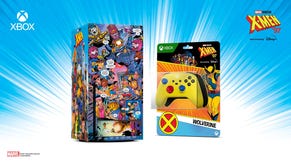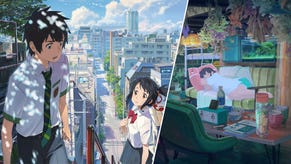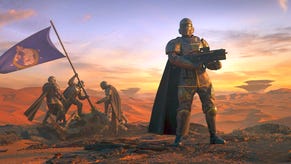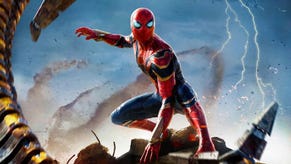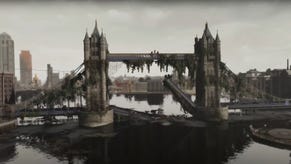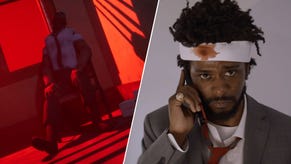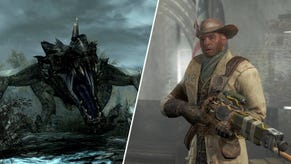The Weekly Wrap – EA-PopCap, TF2 goes F2P
Love, loss, car chases, frequent Godzilla references – The Weekly Wrap has one of these things. Read on for the shocking answer, along with a nice helping of the week's biggest news.
Rumour - PopCap to be acquired for $1 billion by EA
What happened: Technically nothing, so far. But loud whispers are suggesting that EA's fe-fi-fo-fummed its way into bed with PopCap. Since big numbers are frightening, we've gone ahead and translated the situation into Resident Evil 4 salesman: “I'll boi it at a high price.”
What it means: If true, EA's going all-in with this one, seeing as $1 billion is roughly 13 percent of the publisher's total value. Odds are, EA's seen the writing on the wall; it knows that, if it wants to remain the size of a small country/mid-sized Godzilla in this brave new triple-A-unfriendly world, it's going to need to rule the mobile/social scene with an iron fist. Otherwise, lay-offs and snazzy new sackcloth wardrobes for everyone! Seeing as Plants vs Zombies, Bejeweled, and Peggle are the terrifying mutant offspring of a cash cow and the goose that lays golden eggs, PopCap's an absolutely fantastic buy.
But what does this mean for PopCap? Well, of all the publishers with their own gravitational pulls, EA's the best about allowing developers to take creative risks. PopCap's trademark charm, then, probably won't get too much of a white-washing. More troubling, however, is the way PopCap's development process clashes with EA's. PopCap's proven to be incredibly methodical, giving each individual game and platform its full, undivided attention. EA, meanwhile, favors quick turnaround times and simultaneous multiplatform releases. When that approach works, EA makes bank. When it doesn't, we get Dragon Age II. Our heads say that won't deter EA from doing some strong-arming when its shareholders come a-knocking, but our hearts hope we're wrong.
TF2 becomes the "most highly-rated" free-to-play game
What happened: Valve instantly became one of the biggest fish in free-to-play's relatively small pond with Team Fortress 2. For a brief, shining moment, every game developer in the world thought “You know, maybe my game would be better if I added in a series of silly hats.”
What it means: The free-to-play space just got a hell of a lot more interesting. Team Fortress 2's Heavy-sized helping of content pretty much puts every other F2P multiplayer shooter to shame. And given that most of its competition (Quake Live, Ghost Recon, Battlefield, etc) is even older than it is, the whole “been there, done that” issue isn't even too terribly huge of a factor.
What's really striking about all this, however, is Valve's utter lack of wallet-baiting shenanigans. All items can still be earned through normal play, and TF2's ever-popular multi-part updates will continue to keep their hands off your piggybank. This stands in stark contrast to other F2P games, which – at the very least – generally ask you to pony up for new levels and things of that nature. If TF2 keeps turning a profit in spite of its generous soul, it could very well shift the entire F2P landscape – or at least raise the bar in terms of how much bang players expect for their non-buck.
Crytek says its intentions with Crysis 2 "backfired a little bit"
What happened: Hell hath no fury like a PC gamer scorned. After Crysis 2 failed to become PC gaming's new boogie man – the nigh-mythical force older PCs whisper of to their children while tucking them in at night – PC gamers turned militant. So basically, they shouted a bunch on message boards. In response, Crytek announced a DirectX 11 patch as “a gift to the high-end community.” Which apparently translates to “the prettiest bricks in the entire goddamn world.”
What it means: Even though – in our opinion – PC gamers' “the sky is falling, God is dead, and that texture has three less gigglenaughts than its Crysis 1 equivalent” reaction to Crysis 2 has been more than a bit overblown, Crytek listened to its fans. Yes, it took a few months, but free is free.
On the other hand, this is just the latest example of an odd trend toward sweeping key PC features under the rug until players burn down the whole house searching for them. For instance, Dead Space 2 lacked customizable controls, and Dungeon Siege III's PC controls were fit for the torture rack in an actual dungeon. Sure, fixes were applied/are on the way, but this stuff is common sense. And while it's definitely a case of better-late-than-never, the lack of consideration here is disconcerting to say the least. We'd like to think the era of awful PC ports peaked with Resident Evil 4. Please, let's not try to top it.
Miyamoto: Best online experience not Nintendo's goal
What happened: Shigeru Miyamoto – creator of Mario, Zelda, and the world's most delightful smile – admitted that the Wii U's not aiming to stand atop the corpses of Microsoft and Sony's online offerings, sword raised in triumph. Similarly, the next-gen machine isn't stockpiling for a graphical arms race, with Miyamoto declaring that it probably won't “dramatically outperform” current consoles.
What it means: It seems that – with each week – Nintendo's goal of luring hardcore gamers away from Master Chief, Nathan Drake, and car from Gran Turismo is moving further and further out of reach. See, here's the issue: the Wii U's looking to be up-to-par. Serviceable. That's fine for folks weaned on the Wii, but why should hardcore gamers run their credit cards through the ringer when they've already got another console that fulfills their needs just as well – or, in some cases, better?
The Wii U certainly has potential, but we still think Nintendo's spreading itself too thin. For every “We've got this totally rad zip-zop-zoobity-bob feature,” there's been a corresponding “but...” to rain on everyone's parade. That said, we're still going to buy one in 47 years when Smash Bros comes out.
Hideo Kojima asks if Japanese developers need International success
What happened: With Japanese game developers targeting Western audiences with all the subtlety of a chainsaw bayonet to the gut, Metal Gear creator Hideo Kojima spoke out as a lone voice of measured opposition. “If you’re trying to break out overseas, then I think the only way is to divide your development teams between the Japanese and global markets,” he said.
What it means: In a lot of ways, Kojima's right. The whole “let's apply a bunch of Western stereotypes to Japanese game design” at best results in uneven, all-over-the-place work. At worst, well, hi there, Quantum Theory. And yes – creative or not – Japanese aesthetics generally trigger some sort of primal fight-or-flight urge in Western gamers. As Kojima said: “Americans will counter with ‘What’s with these games featuring these feminine-looking boys fighting in Japan with these huge swords?’” It's a stereotype, sure, but that's exactly why Western gamers are turned off in the first place.
Really, there are two central issues as we see it. First up, the most obvious one: Japanese game development has become heavily reliant on a select few slowly evolving (or downright stagnant) genres. Western gamers have fond memories of them, sure, but nostalgia only goes so far. Second, many Japanese aesthetic and design concepts are simply at odds with current Western trends. The West has its gruff, gray-loving manly men, and Japan has its idealistic youths who apparently descended from some primordial version of the Cookie Monster. And so on and so on. Mix the two sides with only a marketing survey to inform you, and you get a weird Frankenstein monster that knows only hate. In the triple-A space, going global is basically crucial these days – no doubt about that. But if your heart's not in designing a game that's good on its own merits, well, maybe you shouldn't be making these things in the first place.






